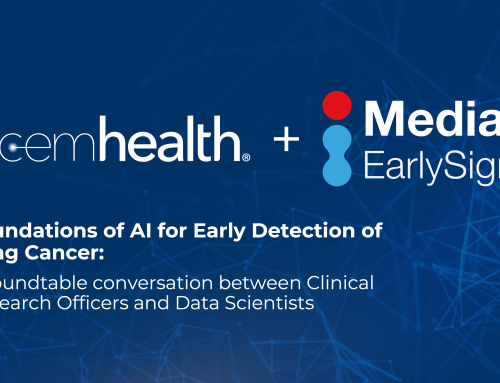
Blood Test Offers Additional Approach for Early Cancer Detection: Commentary from Lucem Health
The Importance of Early Cancer Detection in Healthcare
The quest for early detection of disease, including cancer, has long been a goal in healthcare. A recent study brings news about a new blood test that aims to detect tumors across at least 25 types of cancer, including the most prevalent and lethal ones like breast, pancreatic, lung, and colorectal cancer.
If confirmed in subsequent studies, this technology could save millions of lives and alleviate the financial burden associated with later-stage cancer treatments.
Blood Test for Early Cancer Detection
The new blood test offers the potential for early detection of cancer using a common set of VSEL (very small embryonic-like stem cells)/CSC (cancer stem cells) specific biomarkers in peripheral blood. According to the study’s authors, these biomarkers can indicate the presence of cancerous cells at their earliest stages, allowing for quicker diagnosis and treatment. Early diagnosis often leads to better patient outcomes, attributed to increased treatment success rates compared to late-stage diagnoses.
Benefits and Implications of Early Cancer Detection
- Enhanced survival rates – Early detection and intervention could notably improve patient survival rates, as treatments are more likely to halt tumor growth and prevent metastasis when the tumor is small.
- Decreased financial burden – Late-stage cancer treatments can be extremely costly, causing significant strain on patients’ families and healthcare systems. Detecting cancer earlier can reduce these costs, helping both patients and healthcare providers.
- Improved patient experiences – Early cancer detection could lead to less invasive treatments, enabling patients to avoid aggressive and debilitating therapies that too often are the only options for late-stage cancer. Less invasive treatments can better preserve a patient’s quality of life during treatment and minimize long-term side effects of therapy.
- Driving research and targeted therapies – As our understanding of early-stage cancer biomarkers grows, more targeted therapies can be developed to address the unique features of each cancer type. This personalized medicine approach can boost treatment efficacy and reduce side effects for patients.
This blood test may contribute positively to improved cancer detection and treatment. If the technology is validated and refined, its use may improve patient outcomes and reduce long-term treatment costs.
A Comparison of Early Cancer Detection Solutions
The New Cancer Screening Tool
The new blood screening tool is designed to detect cancerous tumors before they form. The test works by analyzing specific biomarkers in a patient’s blood that can show the presence of cancerous cells at very early stages. This tool’s primary goal is to identify cancer in its infancy, facilitating prompt intervention and potentially improving treatment success rates.
AI Early Disease Detection Tools
In contrast, artificial intelligence (AI) early disease detection tools rely on algorithms developed with machine learning methods to analyze medical data. This data may include electronic health records, CT (computed tomography) scans and other images, ECGs (electrocardiograms), genomics, and other information sources. AI tools find patterns and connections in the data, aiding in the early diagnosis of various diseases, including cancers.
Key features of AI early disease detection tools:
- Analyzes diverse data sources, such as medical records, imaging, ECGs and others.
- Employs machine learning algorithms that identify patterns that humans may not have spotted.
- Has a broader scope, capable of detecting multiple diseases and conditions.
Key Differences of Early Cancer Detection Solutions
While both methods focus on early disease detection, the new blood screening tool specifically targets cancer biomarkers. AI early disease detection tools cover a broader range of diseases. The blood screening tool involves laboratory analysis, while AI detection tools, like Reveal for Lower GI, leverage machine learning algorithms to process various medical data.
To sum up, both tools offer the opportunity to increase patients’ chances of successful treatment and reduce the overall cost of care. These two approaches could complement each other as part of a comprehensive early disease detection strategy in healthcare.
Learn how Lucem Health Reveal AI solutions can help you improve your patient outcomes and reduce the total cost of care.
